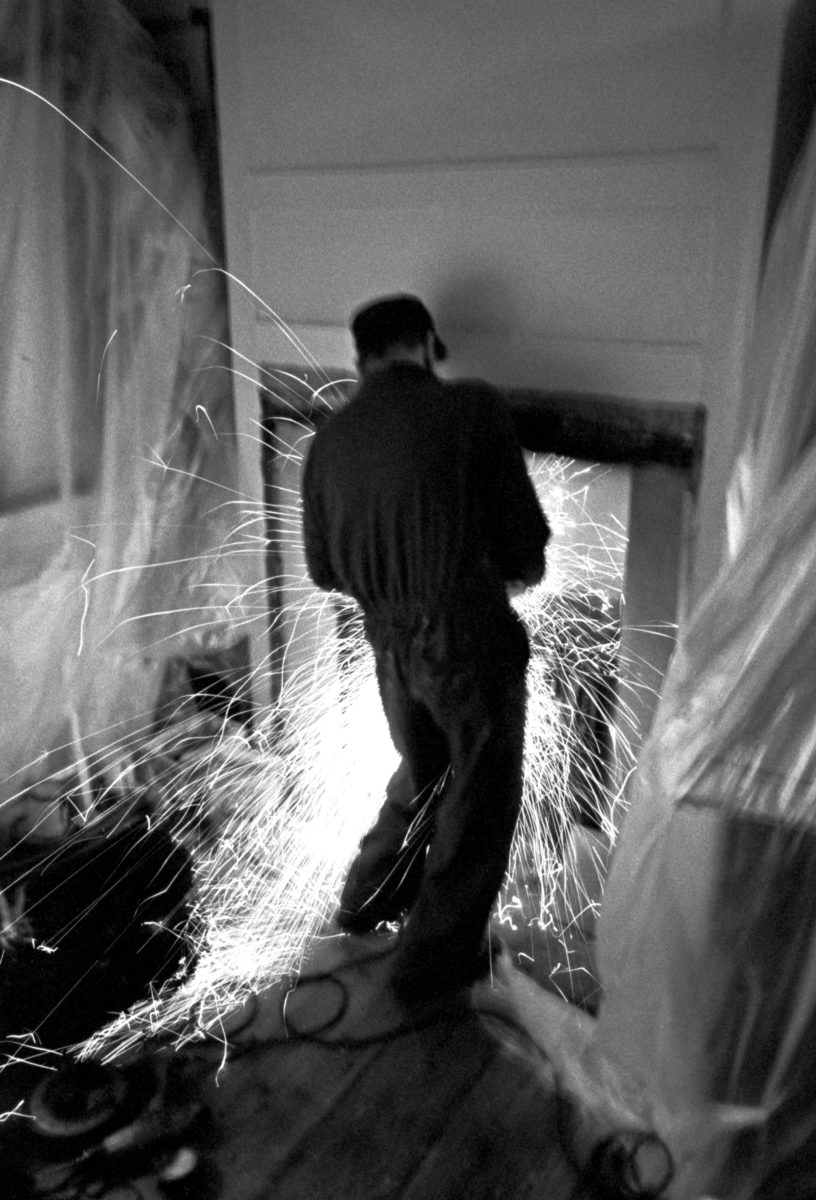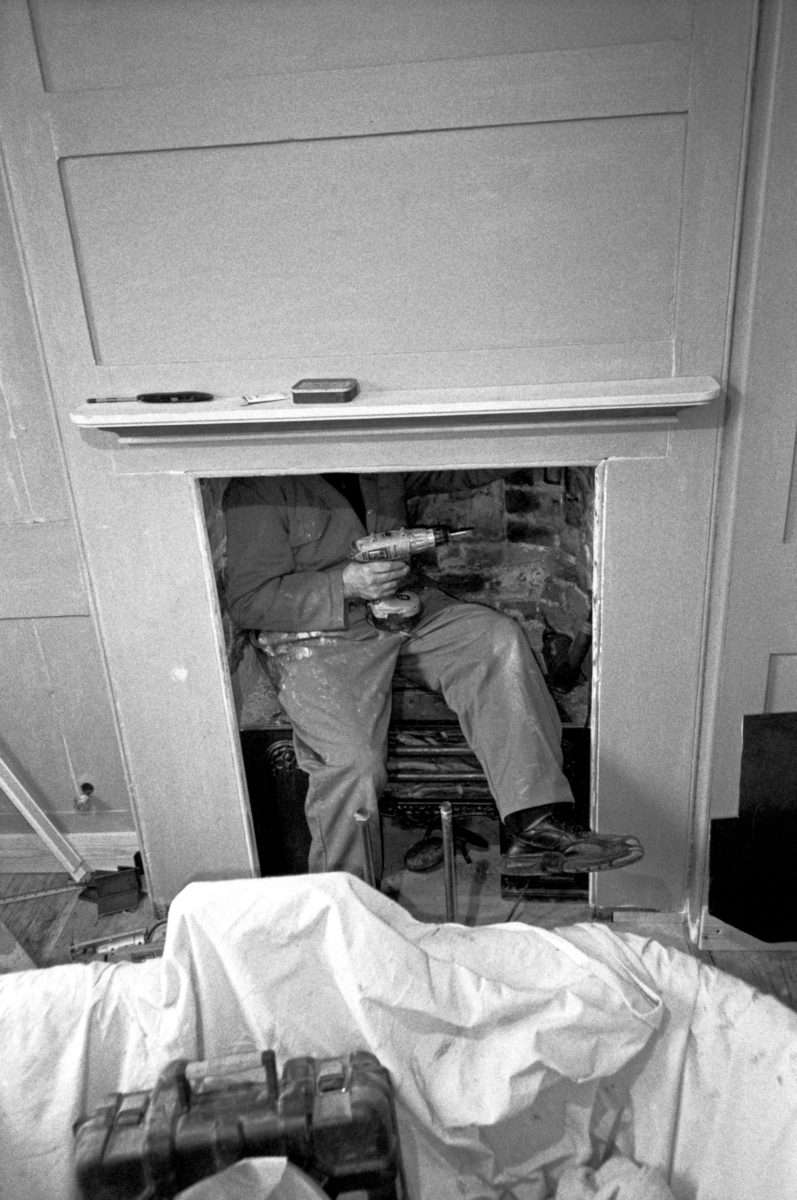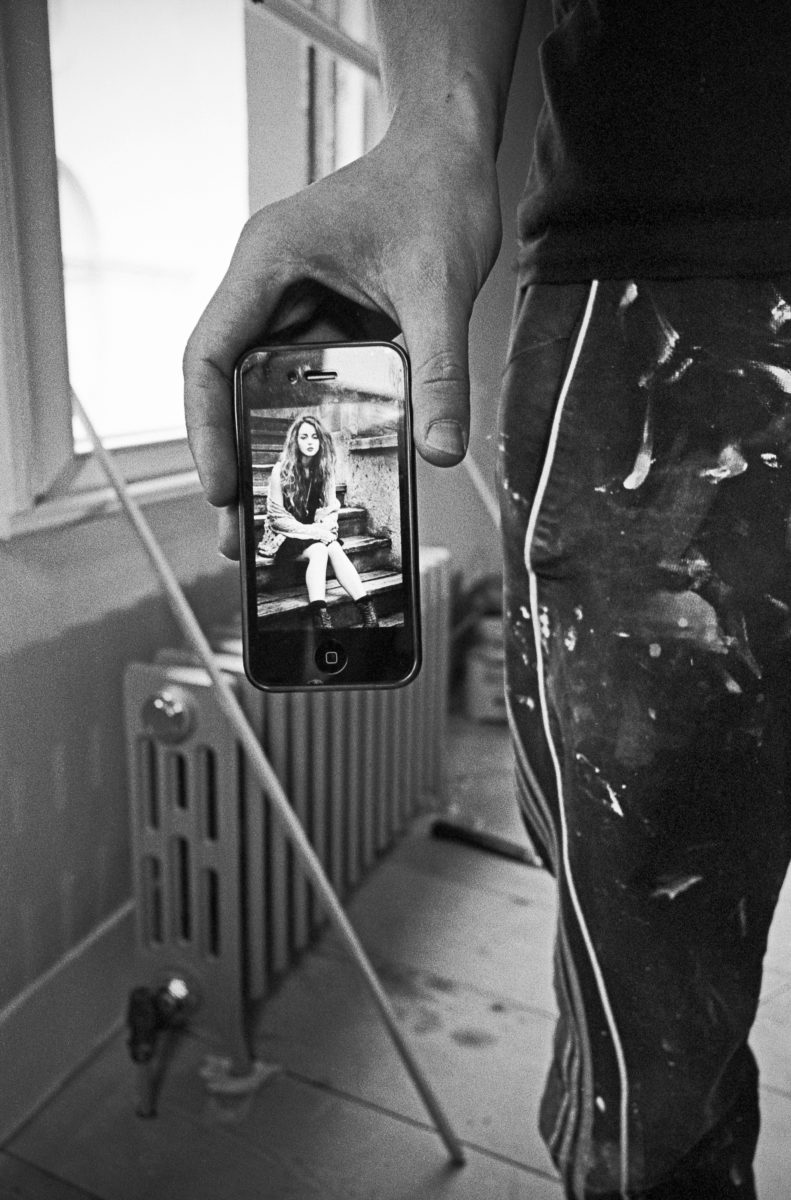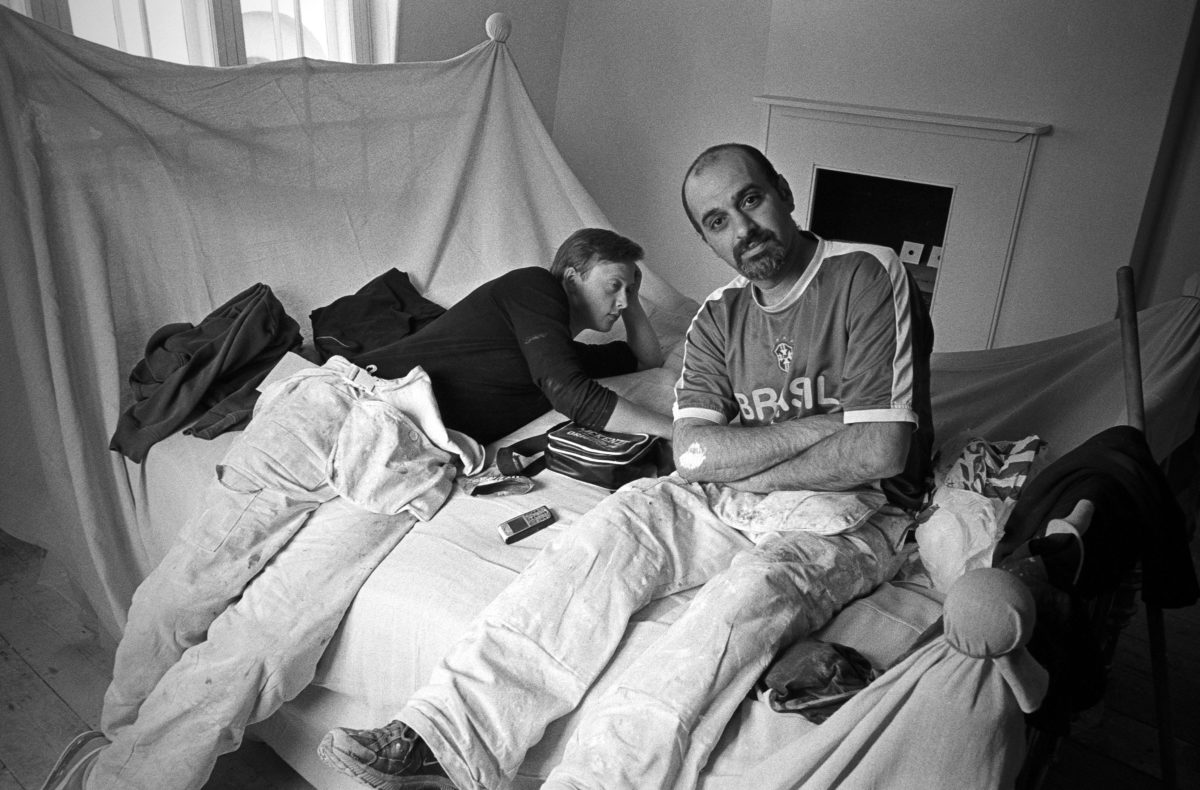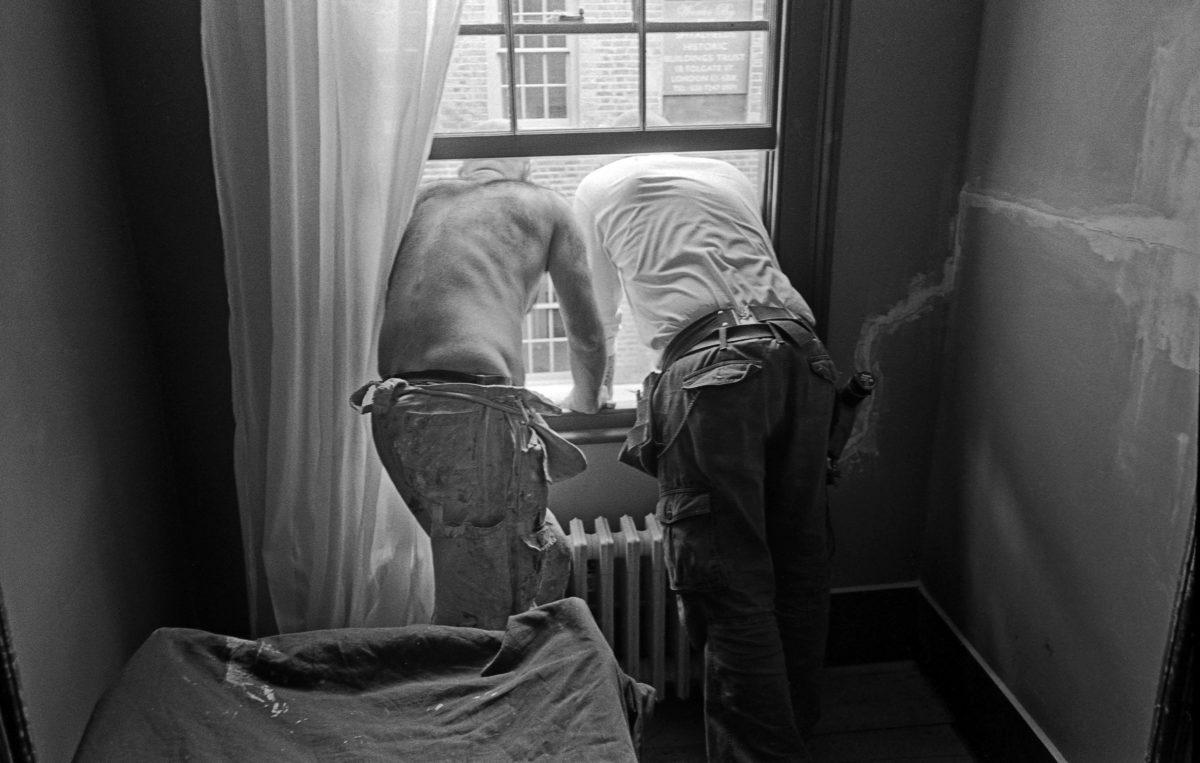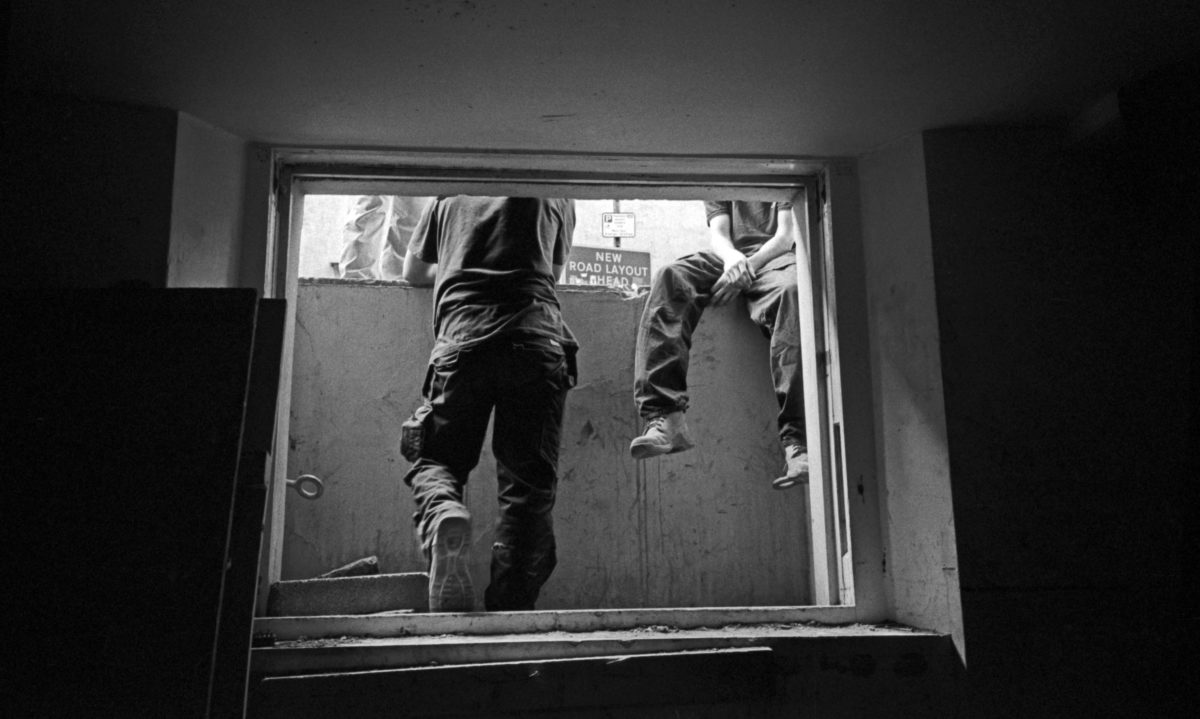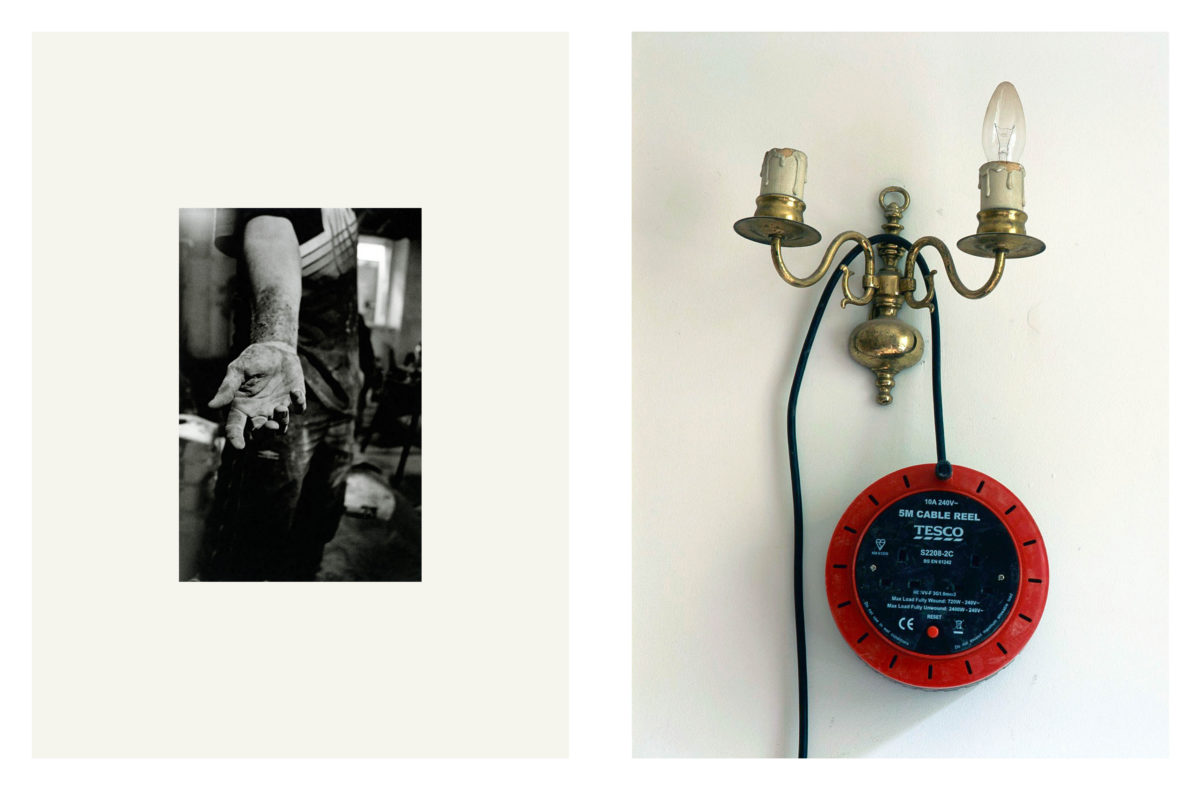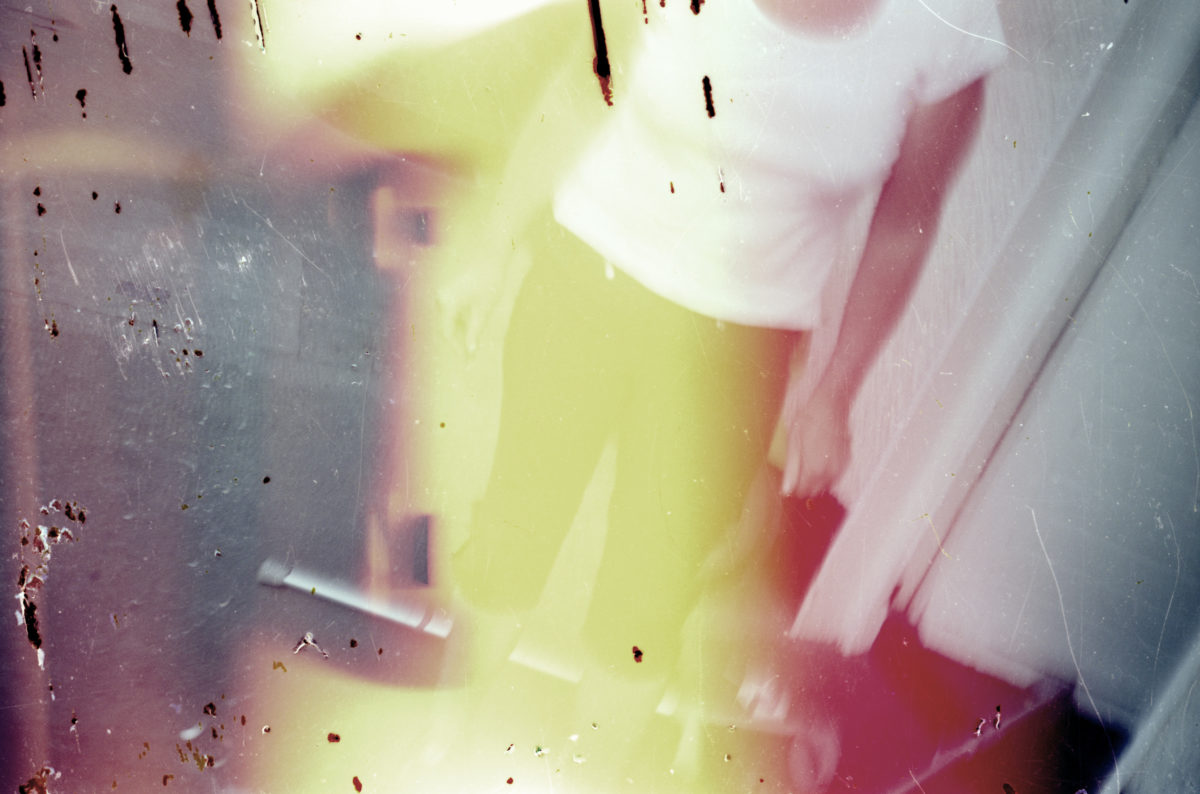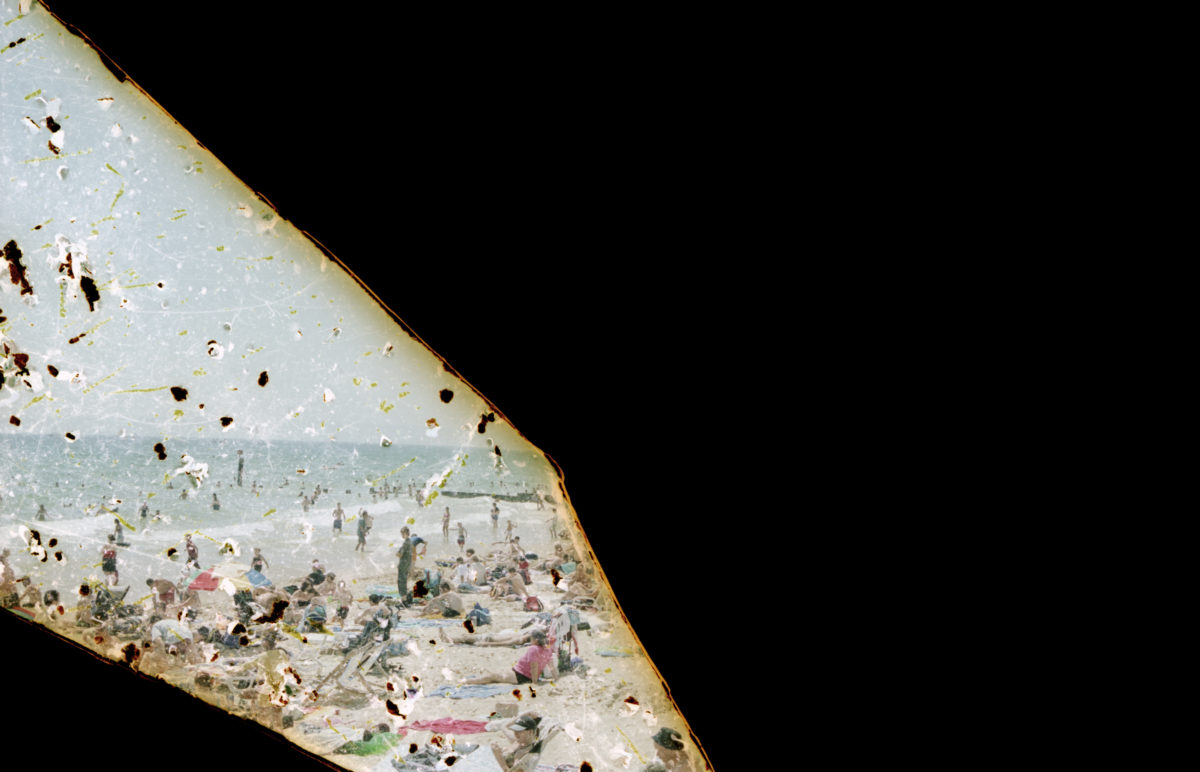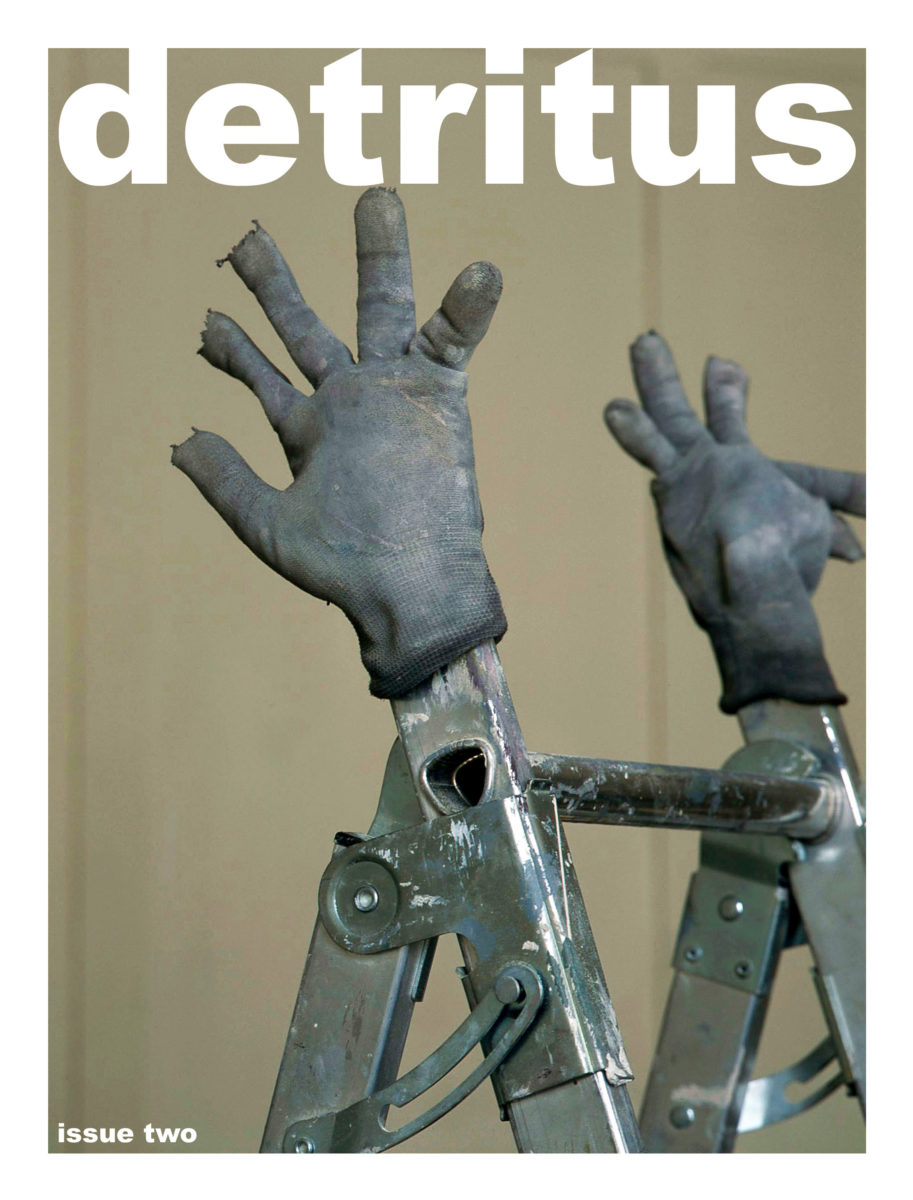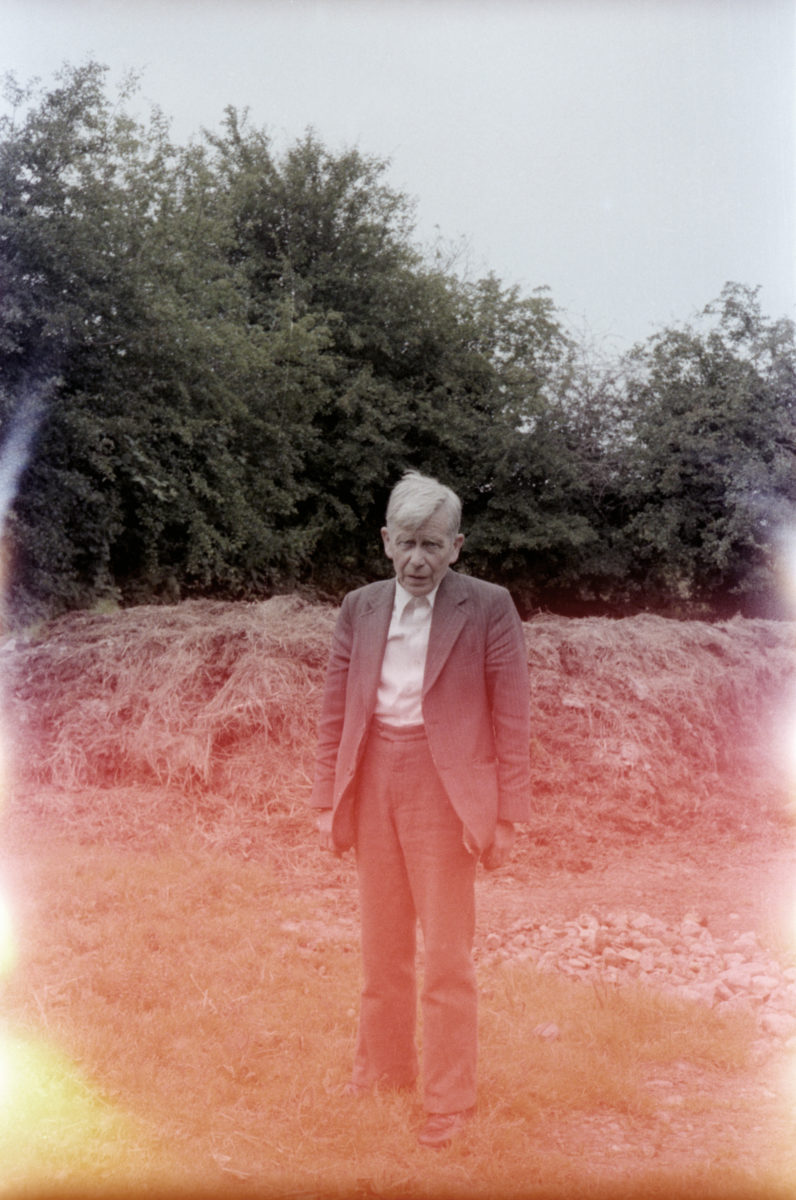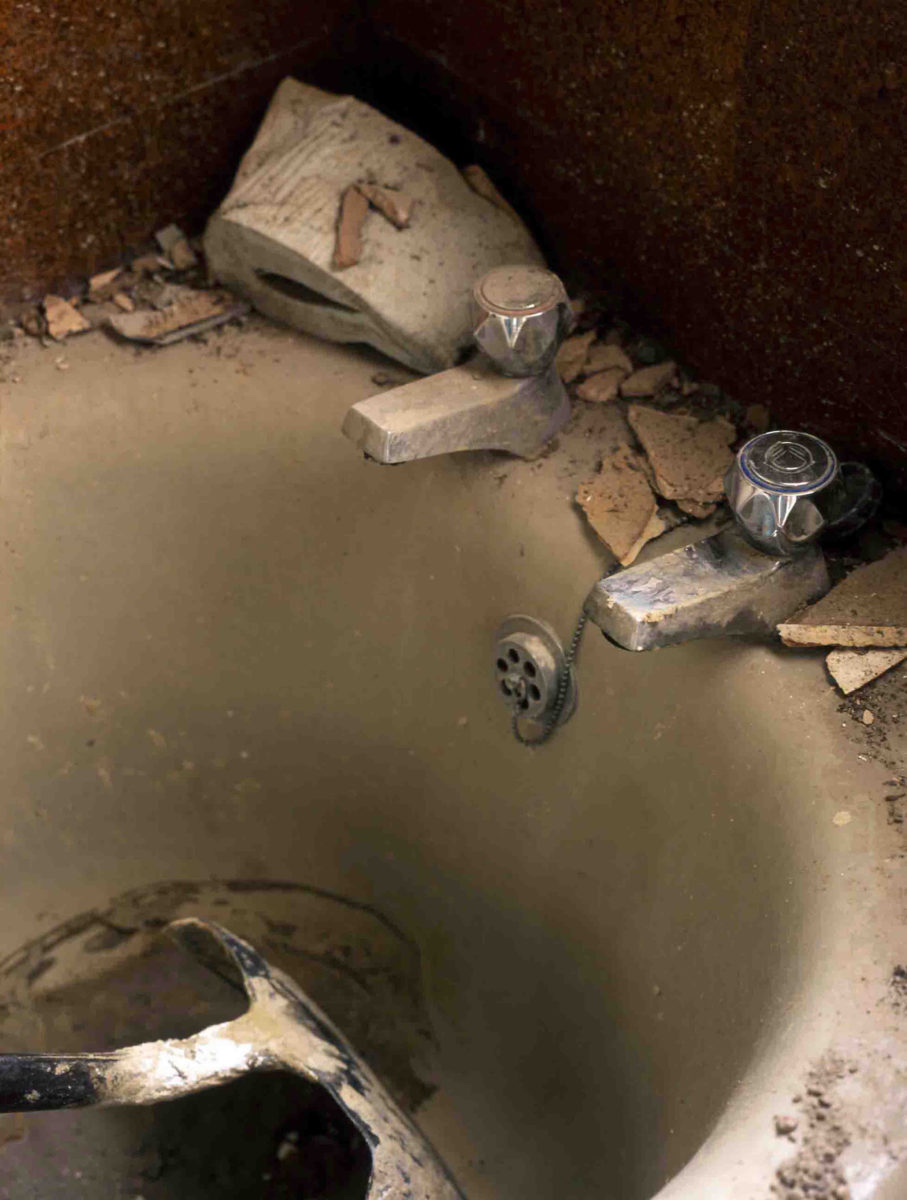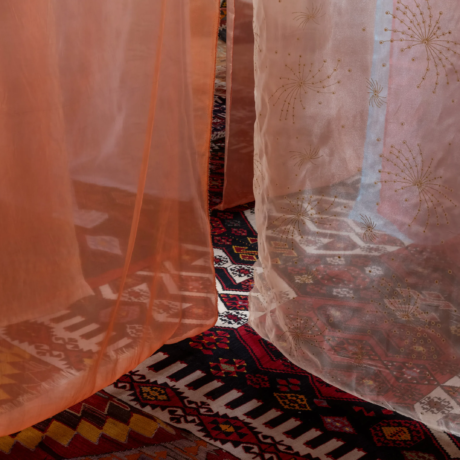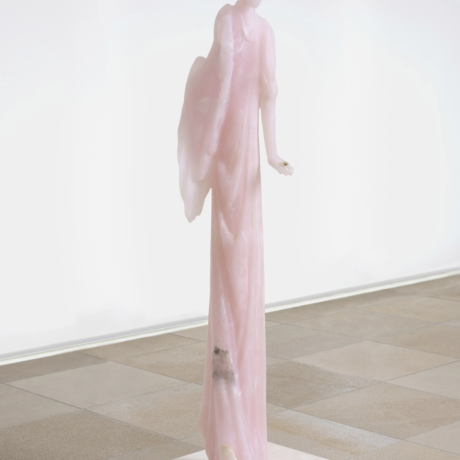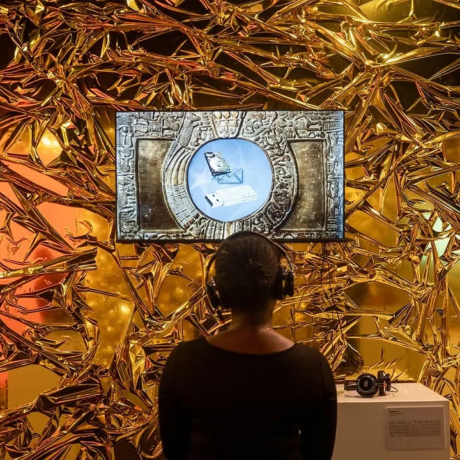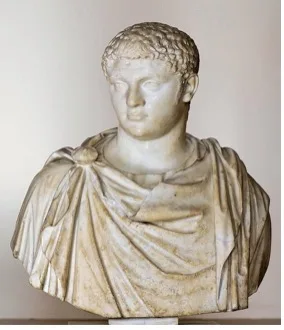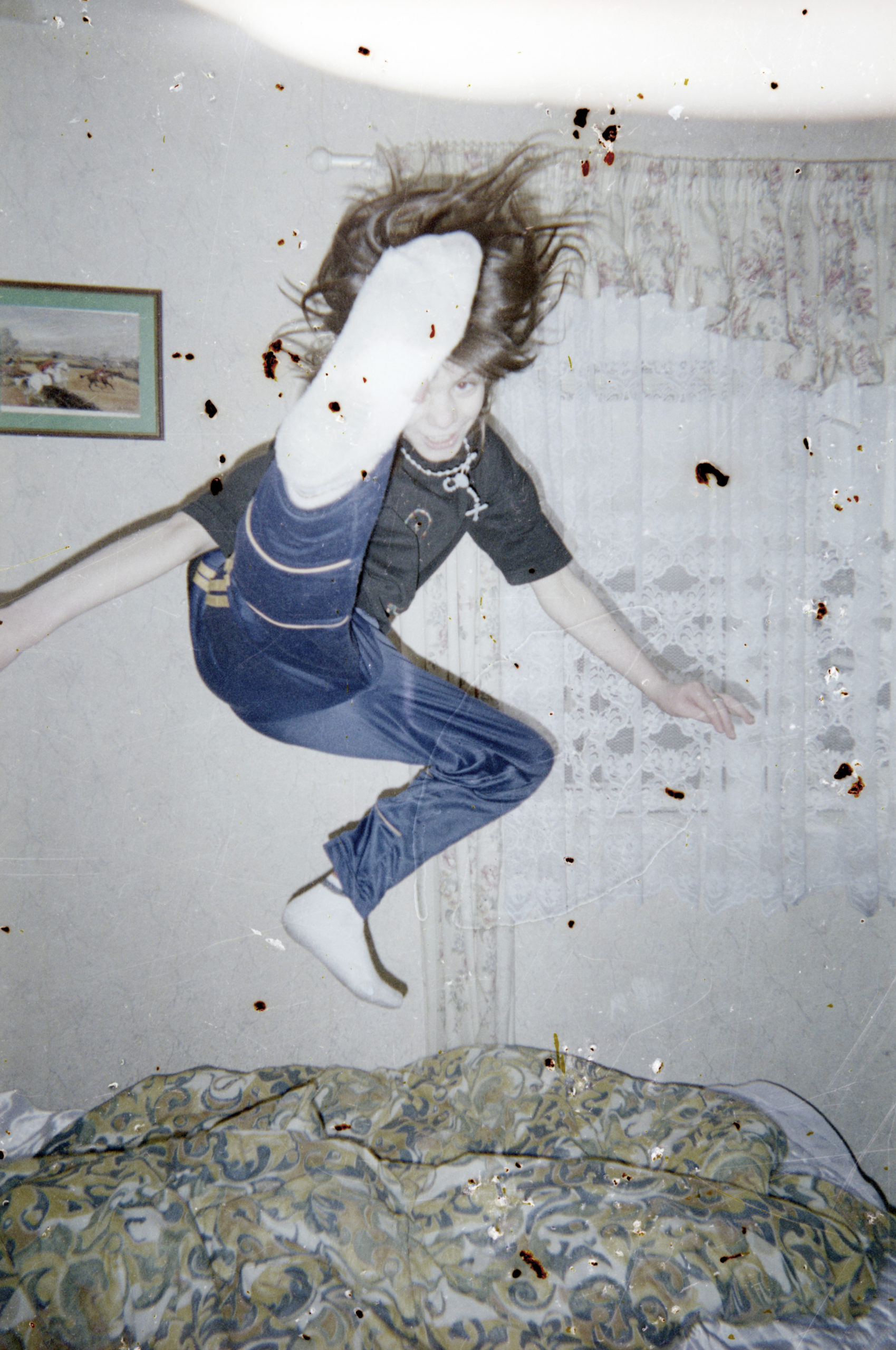
Waste. Refuse. Litter. Scrap: all these words are synonymous with the word “detritus”, but lack a certain charm. Perhaps that’s why photographer David O’Mara chose “Detritus” as the title for his self-published zine project. In all of his work, O’Mara seeks out beauty in the otherwise ignored or forgotten; found imagery that he lovingly resuscitates makes up one half of his artistic practice, while the other is spent shooting building sites at his day job as a painter decorator.
- David O’Mara, If You Can Piss You Can Paint
These slightly disparate counterparts are united in Detritus. Although he stopped printing issues in 2015, there’s a timelessness to the pages, which piece together the beautiful with the broken. Readers leafing through the pages are likely to chance upon witty juxtapositions: gloves, stiff from use, are stuck onto a ladder for safekeeping; a supermarket-branded cable reel is draped over a faux candelabra.
These shrines to the unexpected brilliantly clash with damaged negatives that O’Mara has rescued from the street and lovingly printed into being. A photograph of a woman attending a wedding is disrupted as she is unwittingly surrounded by congealing colour and engulfed into memory. O’Mara describes this as reality “tearing through the surface” of the negative as “the hardness of the pavement or the treading of feet violate the illusion of depth, redacting part or all of the recorded moment.”
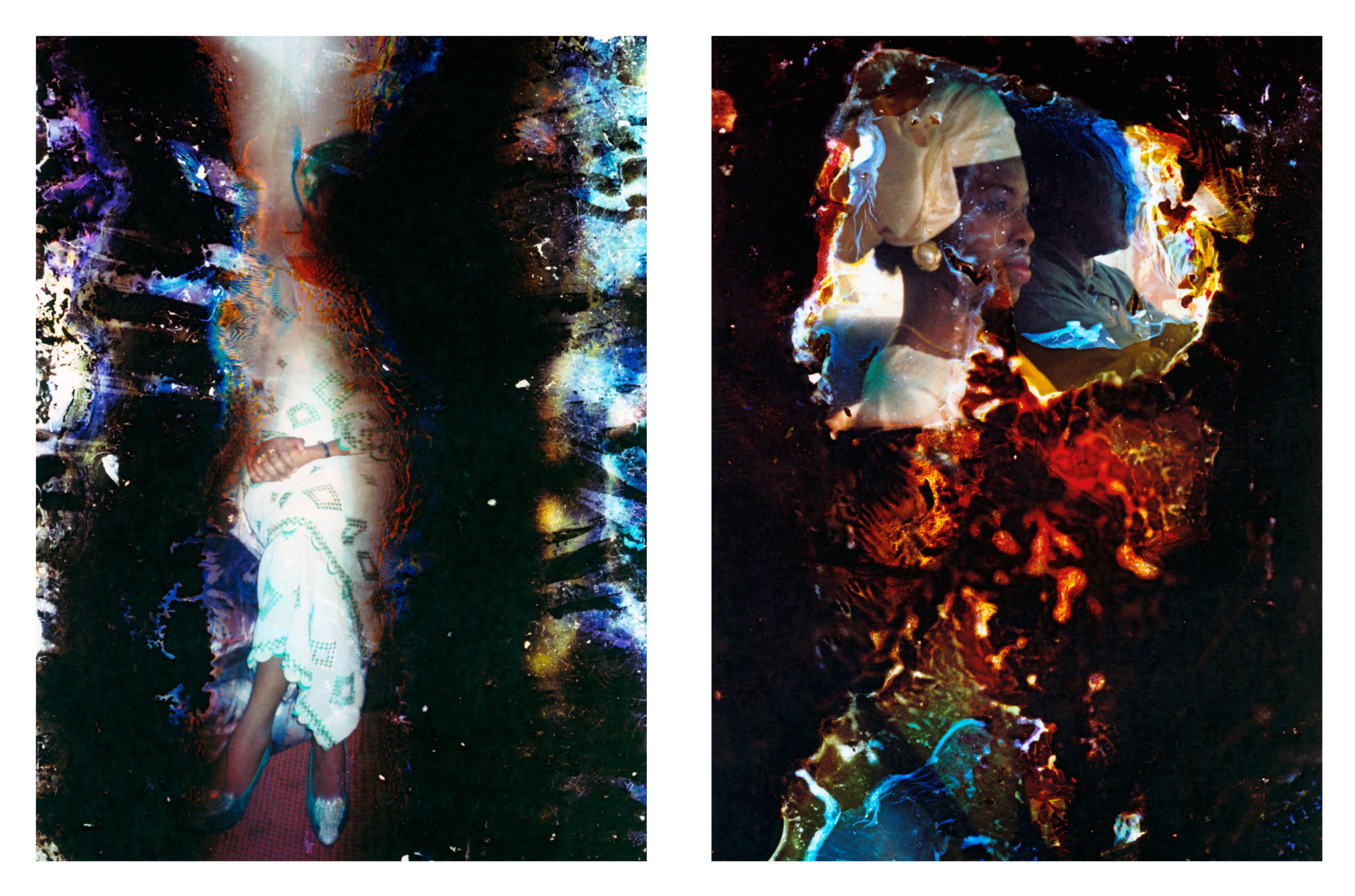
“By collecting the overspill of visual commodification, he links the image of ourselves with the products that we consume”
To explain his work, O’Mara solicits a Charles Baudelaire quote describing a rag-picker. “He collects, like a miser guarding a treasure, refuse which will assume the shape of useful or gratifying objects between the jaws of the goddess of Industry.” This translates into O’Mara’s intention to “sift through refuse on the streets looking for the images that have been discarded, the residue of a saturated visual culture.”
Between advertising flyers, old magazines and generic packaging lie gems of the personal—glimpses of private lives that “encapsulate the complexities of existence in an advanced consumer society,” as O’Mara puts it, “and the duality of all our lives as producers and consumers.” By collecting the overspill of visual commodification, he links the image of ourselves with the products that we consume, declaring it “apt that these materials should share the same fate in the gutters of the street.”
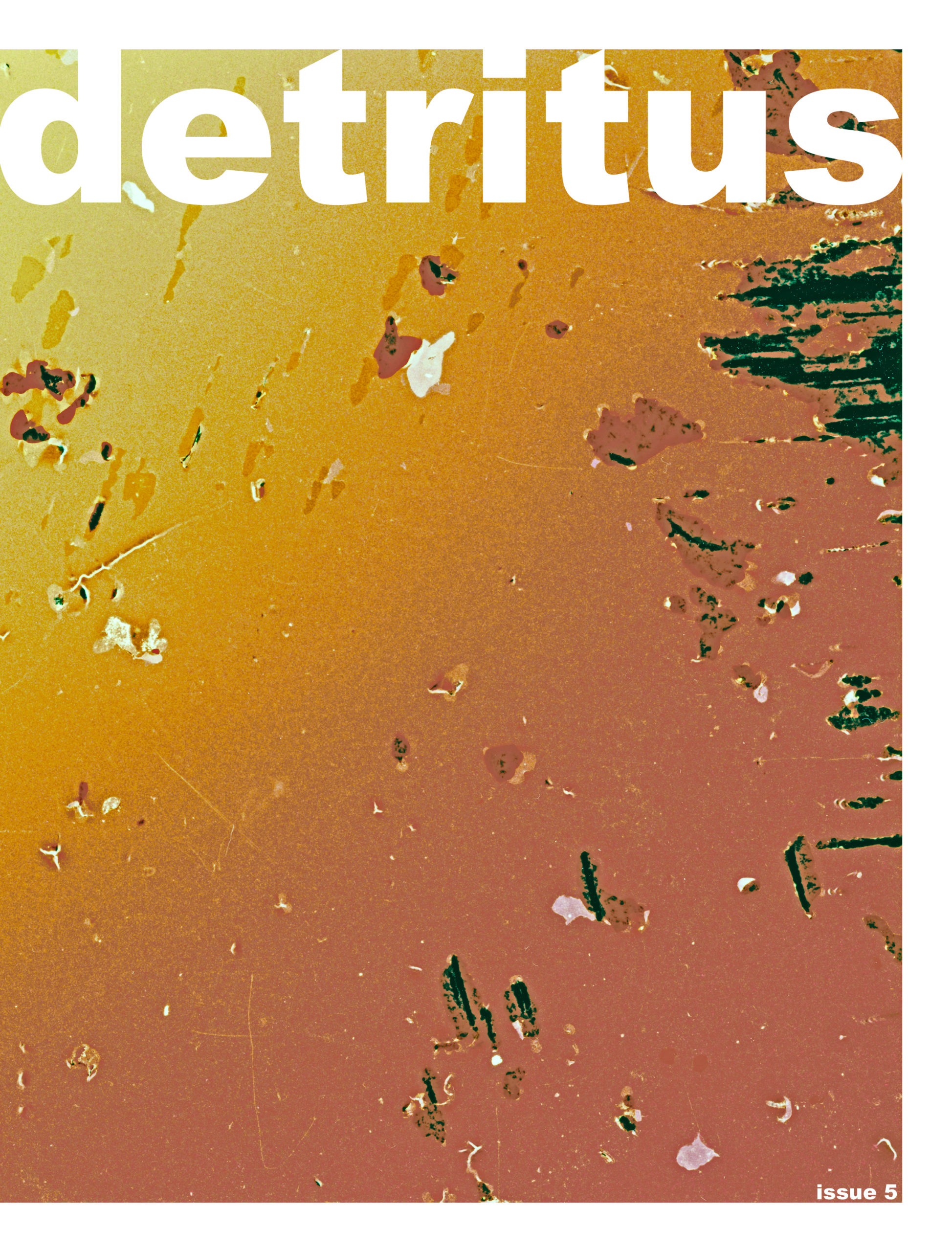
David O’Mara, Detritus
O’Mara’s magpie eye is equally instrumental in his own photography, always searching for genuine representations of life through the lens of his 35mm camera. Many of these photographs made their way into O’Mara’s 2019 book If You Can Piss…, a love letter to the “regular on-site derision” that captures the affinity and humour of building site work. Through the book, he aims to resolve the fact that painter/decorator work subtracts time from his artistic practice; If You Can Piss… is O’Mara’s answer to the conflict, allowing one to inform the other.
He explains this desire to document the working world of construction as “the shared experience of our working lives, including as it does the complex nature of identity, camaraderie and class.” The resulting images are thoughtful, while in equal parts fleeting, and capture moments that are strangely intimate, caught up in the familial collectivity of teamwork. It is this talent for memorialising the everyday—not just to validate but to celebrate—that distinguishes O’Mara’s unique eye for that which others would overlook.
All images courtesy of the artist
